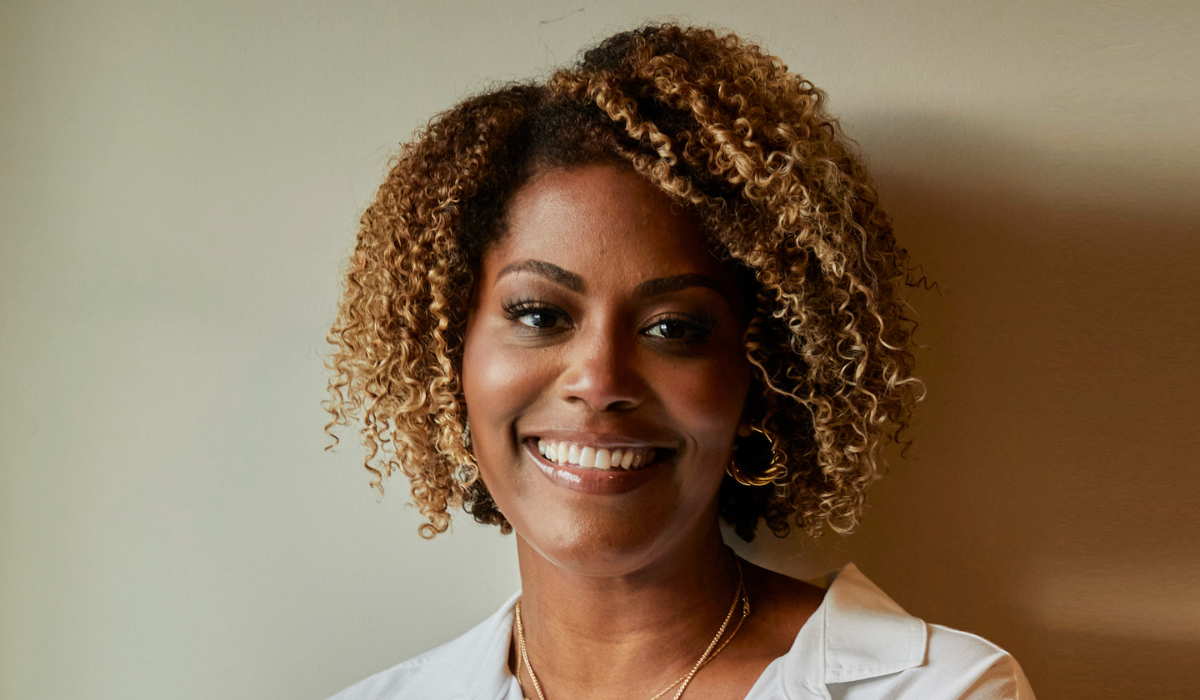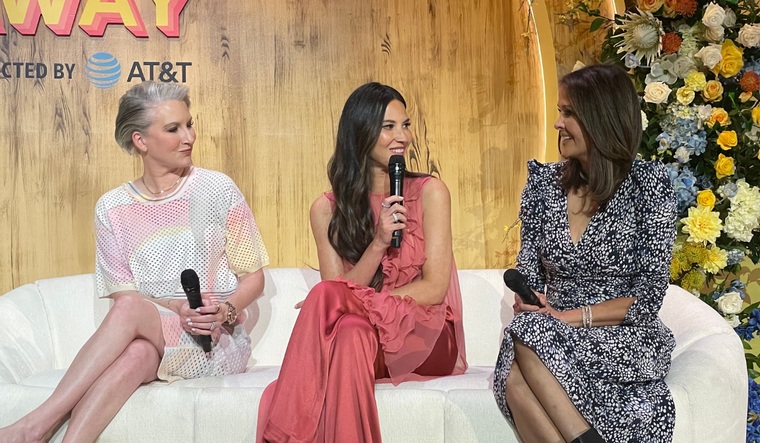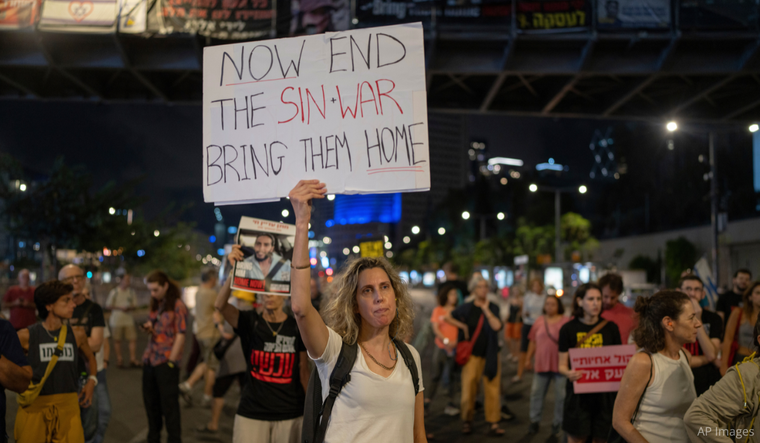On the Eve of Juneteenth, This Author Says It’s Hard to Reckon with Our Country’s Racial Injustice. Still, She Has Immense Hope
We all want similar things in this life. We want to love, experience joy, feel the sun on our faces, do good work, exist freely, and be. Yet if you are Black in this country or part of another marginalized and oppressed community, these fundamental human rights are not a given.
Marisa Renee Lee likens systemic racism to a form of grief. “It is a chain of unrequited love,” the author of Grief Is Love: Living with Loss says about how some people and systems in America fail to see her and her fellow Black Americans as “complete whole” people. But as sickening, heart-wrenching, and wrong as this truth is, Lee chooses to move forward with love and hope. Real racial recognition and progress call for everyone to reckon with the realities of inequality, she tells The Sunday Paper.
“If you Black, Brown, Latinx, Indigenous, LGBTQ—being discriminated against and worrying about your safety is a part of your life,” she adds. “That takes a significant toll on people. But I hope, as we continue to have these conversations, that folks will take note of these realities and try to make things better.”
A CONVERSATION WITH MARISA RENEE LEE
In your book, Grief Is Love, you write how you were curled up on the floor of your office after George Floyd's death, "unable to process his death and the burden of Blackness." It's been three years since Floyd's death, and still, many horrible things continue to happen to Black people in this country. How do you cope with this continued racial oppression?
I've been struggling with Juneteenth this year for that reason. Looking back at the summer of 2020, everyone screamed, 'Black Lives Matter,' 'Things are going to change,' and 'We have to do better.' And now, here we are three years later, and it doesn't feel like much has changed—and that's a hard thing to reckon with and acknowledge as a Black woman who cares about America. As a mom to a Black boy, this is frustrating, terrifying, and rage-inducing. I will add that I have, relatively speaking, enormous privilege as someone who's had the opportunity to change policy and who has financial resources, an education, and community support. Still, it's really hard.
Where I am at with all this is I am continuing to try to push people in my life, Black and White, to be honest about the fact that we haven't made much progress these last three years. One change that I have noted is that there are more White people interested in having these conversations and trying to develop a better understanding of what Black life and Black grief look like. I'm grateful for that.
You liken racism to a form of grief. Will you talk about that?
The way I define grief in Grief Is Love is it is the repeated experience of learning to live in the midst of a significant loss. I took time with that definition because I wanted my definition of grief to encompass other forms of loss—the loss of a marriage, the loss of a job or a career, the loss of your health. In the case of Black folks in America, I liken racism to another form of grief.
Fundamentally, I love America. I have a United States passport, served as a leader in our nation's government, and represented the United States overseas. This is the only country I've ever known, and my parents, grandparents, and great-grandparents have ever known. Yet no matter how much I love this country, no matter how much I serve this country, no matter how hard I work, no matter how good I am at anything, it still isn't enough for me to be seen as a whole person by some Americans, and some systems because of the way that this country was constructed. So that pain is absolutely grief.
How do you care for yourself as you live with this grief?
It's a multi-pronged approach. There is a piece around acknowledgment, where I create space to acknowledge how frustrating and exhausting it is.
Then there is a piece around advocacy and education that I care about, which I believe comes from my upbringing and faith tradition. I know it is not my job as a Black woman to explain the horrors and pains of racism to White people. But it is such a part of my lived experience that I'm not capable of keeping my mouth shut, frankly. I care about this.
And then there is a piece around protection. There are things I do explicitly and subconsciously to protect myself and my family, keep us safe, and protect my peace of mind. I try to place limits on my social media time and watching footage of horrible things happening to Black people in this country.
I also try to be intentional about surrounding myself with people, Black, White, and otherwise, who will be supportive, gentle, kind, and nurturing when tough things are happening on the race front. I stay committed to joy and living a beautiful, happy life. At the end of the day, I know that joy is my inheritance as a Black person. People have worked hard so that I can take a day off from work or take my son somewhere fun, or just be at peace in my own home. I'm absolutely going to take advantage of that.
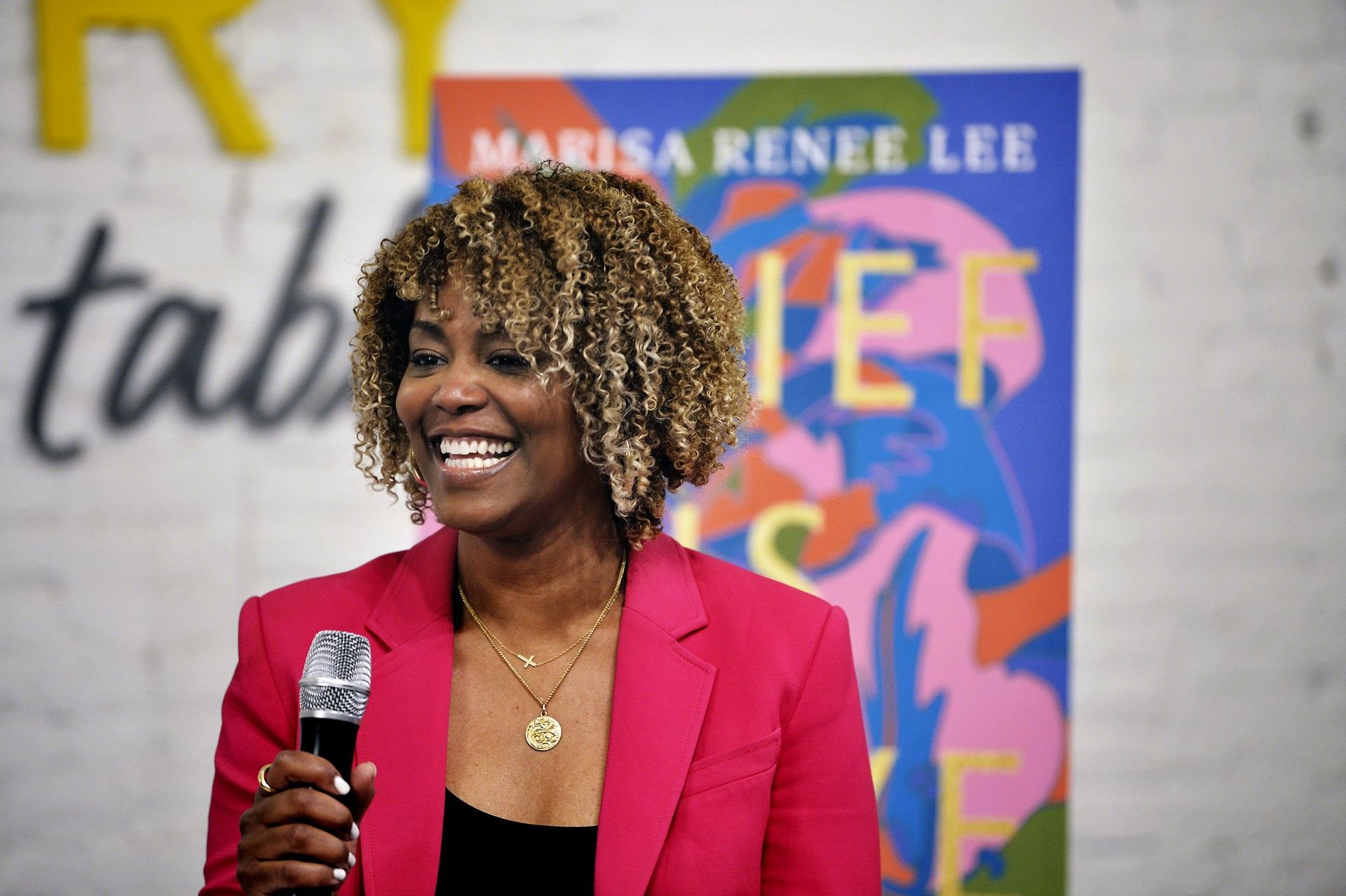
It is uplifting to hear that you've seen a growing intention from White people to understand Black life and grief. Still, how do you respond to White people motivated to do better yet feel they don't know what to do or feel stuck in their privilege?
Brooke Shields interviewed me at my book launch party last year. In one of her questions, she acknowledged how she's encountered grief. But as a White woman of immense privilege, she said she had guilt and a hard time reading the book because of all my remarks about how aspects of grief and life are much harder for people of color. She said she didn't know what to do. And I responded, 'You are doing what you're supposed to do.' All of us who are privileged, whether that privilege comes from your race, gender, education status, or how much money you have, it is your responsibility to extend that privilege to those who don't have it. The guilt doesn't serve anyone. But taking your privilege and sharing it with others makes the difference. Brooke, who is so famous, was there elevating me, my first book, my platform, and my work. That's what we're all supposed to be doing!
I want us all to be taking that message to heart. It's the way my mom raised me. I came from a lower-middle-class family. My mom became disabled with multiple sclerosis when I was 13. We never had much money, but still, whatever you did have, you shared it with other people with a true spirit of generosity and kindness, and care. That's all I've ever known, and that's what we all need to do when it comes to privilege in this world.
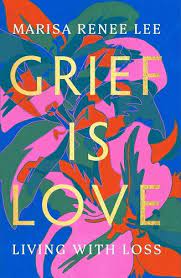
Marisa Renee Lee is an author and entrepreneur. In 2008, her mother died of cancer, a loss that led her to question what grief and healing truly are. This experience led her to write her book, Grief Is Love: Living with Loss and to become a sought-after expert on coping with grief. A former appointee in the Obama White House, Lee works as a founder and self-described “rabble rouser” of social healing. You can learn more at marisareneelee.com. Lee is hosting an upcoming Grief Is Love retreat, which you can learn about here.
Please note that we may receive affiliate commissions from the sales of linked products.

